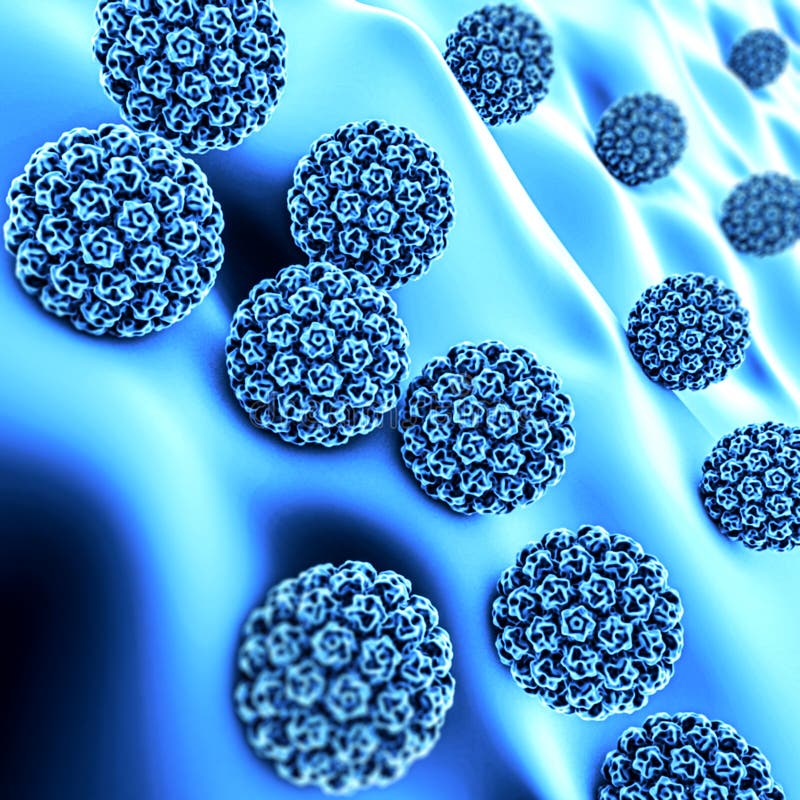The human papillomavirus (HPV) is a virus that commonly infects the skin and mucous membranes. HPV is transmitted through sexual contact and can cause a variety of health issues, including genital warts and certain types of cancer. Almost 80% of people are expected to be infected with HPV at some point in their lives.
There are about 100 different forms of human papillomavirus, which are classified as low-risk or high-risk. Low-risk HPV strains, such as common and plantar warts, can produce skin warts. Certain kinds of HPV are not known to cause cancer. High-risk HPV varieties, on the other hand, can cause cervix, vulva, vaginal, anus, and oropharyngeal cancer (the back of the throat, including the base of the tongue and tonsils).
Sexual contact, including vaginal, anal, and oral sex, is the most common way a genital HPV infection is transmitted. HPV can also be spread skin-to-skin contact during sexual activities. It can be passed from mother to kid during childbirth in rare situations.
HPV infection symptoms vary based on the type of HPV and the location of the infection. Some people with HPV may have no symptoms at all. In some situations, HPV can develop genital warts, which are tiny, fleshy growths on the vulva, cervix, anus, or neck. Topical treatments, cryotherapy (freezing warts), and surgical removal can all be used to treat genital warts.
Human papillomavirus can cause precancerous alterations in the cells of the cervix, vulva, anus, or oropharynx in some circumstances. If left untreated, these alterations can lead to cancer. Regular Pap screenings and HPV tests are required to detect any abnormal cell alterations early on. Therapy for precancerous cell alterations may involve cryotherapy, laser therapy, or loop electrosurgical excision process (LEEP), which eliminates the aberrant cells using a small wire loop.
Cancers of the cervix, vulva, vagina, anus, and oropharynx can also be caused HPV. The most frequent type of HPV-related cancer is cervical cancer, which is caused high-risk HPV types 16 and 18. Cervical cancer can also be caused other high-risk HPV strains, including 31, 33, 45, 52, and 58. Cervical cancer symptoms include irregular bleeding, pain during sex, and vaginal discharge.

Vulvar carcinoma is a rare disease that affects the female genitalia’s outer genitalia, including the labia and clitoris. It is typically caused HPV strains 16, 18, and 31. Itching, burning, and a lump or sore on the vulva are all symptoms of vulvar cancer.
Vaginal cancer is a rare malignancy that affects the vaginal walls. It is typically caused HPV strains 16 and 18. Abnormal bleeding, discharge, and pain during intercourse are all symptoms of vaginal cancer.
Anal carcinoma is a type of cancer that affects the anus and the rectum. It is typically caused HPV strains 16 and 18. Anal cancer symptoms may include pain or pressure in the anus, bleeding from the anus, and changes in bowel habits.
The rear of the throat, including the base of the tongue and tonsils, is affected oropharyngeal cancer. It is typically caused HPV strains 16 and 18. A sore throat, trouble swallowing, and a lump in the neck are all symptoms of oropharyngeal cancer.
There are various things you can do to lower your risk of human papillomavirus infection. Getting the HPV vaccine is one of the most effective strategies to prevent HPV. HPV vaccination is advised for both men and women and is most effective when administered at a young age, often around the ages of 11 or 12. Those up to the age of 45 who have not yet received the vaccine are likewise advised to do so.
Another strategy to lower your risk of HPV infection is to engage in safe sex. When engaging in sexual activity, using condoms can help lower the chance of transmission. It is also critical to limit your sexual partners, as having several sexual partners increases your chance of HPV infection.
It is also critical to practice proper hygiene, such as washing your hands and avoiding personal sharing goods like as towels and razors. This can help lower the danger of transmission via skin-to-skin contact.
If you have been diagnosed with HPV, it is critical that you follow your healthcare provider’s treatment and follow-up care instructions. Regular Std test and HPV tests, and other treatments to monitor for abnormal cell changes may be included.
Sexual contact is a typical way for human papillomavirus to spread. HPV can lead to a variety of health issues, including genital warts and certain types of cancer. Getting the HPV vaccine and practicing safe sex are the best ways to avoid HPV infection.

